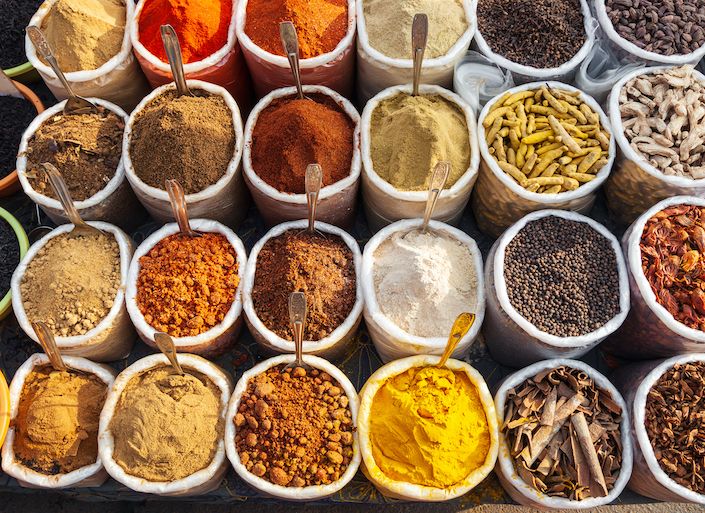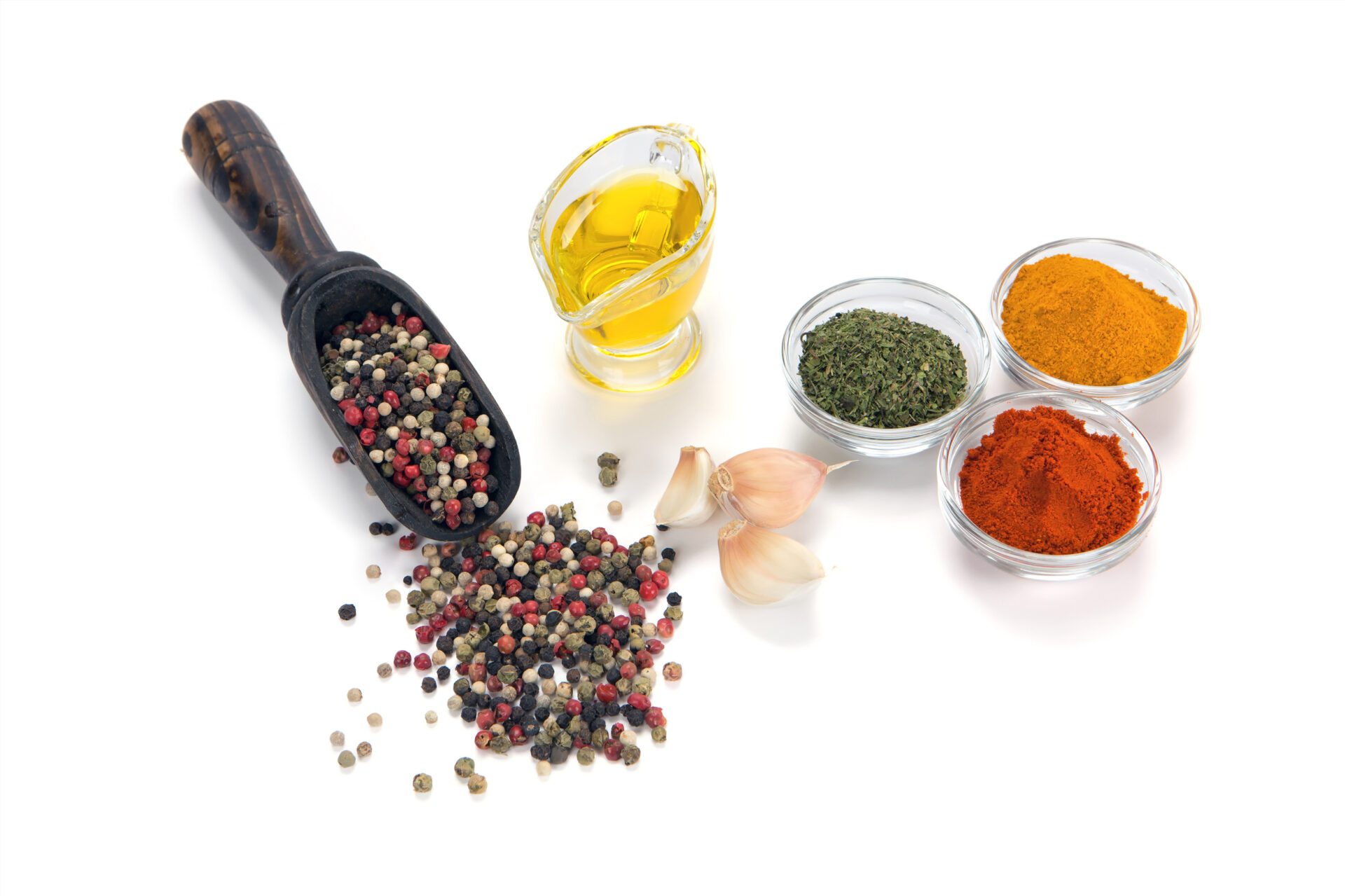In the kaleidoscope of modern agriculture, the vibrant resurgence of organic spices is a testament to the growing conscientiousness of consumers. As our collective awareness of sustainable living deepens, the demand for organic produce, particularly spices, has experienced an unprecedented surge. This paradigm shift is not merely a gastronomic trend but a pivotal move towards cultivating a healthier lifestyle while safeguarding the environment. In this article, we delve into the multifaceted facets of the rise of organic spices, exploring how they contribute to both human well-being and sustainable agriculture.
Workers of the best tire repair in Toronto remark that they love eating their food with organic spices.
Cultivating Harmony: The Environmental Impact of Organic Spice Farming

Organic spice farming operates in harmony with nature, eschewing synthetic pesticides and fertilizers. Traditional agriculture often relies on chemical-intensive methods, leading to soil degradation and water pollution. In contrast, organic spice farming adopts practices that nurture the soil’s health, promoting biodiversity and enhancing overall ecosystem resilience. Crop rotation, composting, and integrated pest management are integral components of organic spice cultivation, fostering a delicate balance between the agricultural landscape and the surrounding environment.
Moreover, organic spice farms often serve as microcosms of sustainability, incorporating water-conservation techniques and employing energy-efficient practices. By reducing reliance on non-renewable resources, these farms contribute to the mitigation of climate change. The rise of such ecologically conscious farming methods marks a pivotal step towards a more sustainable and resilient agricultural future.
Did you know that there are salty delta-8 edibles on which you can put organic spices to enhance their taste even more?
Flavor Unleashed: The Culinary Renaissance of Organic Spices
Beyond their environmental impact, organic spices are at the forefront of a culinary renaissance. Connoisseurs and chefs alike are increasingly recognizing the nuanced flavors and aromatic profiles that organic spices bring to the table. The absence of synthetic additives in organic spice farming allows the true essence of each spice to shine through, resulting in a more profound and authentic culinary experience. In case you want to make a website for a guide about organic spices, consider hiring a website designer to help you with the design.
In addition to the sensory delight they offer, organic spices are also associated with improved nutritional profiles. Studies have shown that organically grown spices tend to have higher concentrations of essential oils, antioxidants, and other bioactive compounds. As consumers become more discerning about the quality of their food, the demand for organic spices continues to rise, driving a positive shift in both culinary practices and dietary choices. The best beauty salon in Toronto offers an abundance of food and organic spices in their cantina.
Sowing Change: Empowering Farmers Through Organic Spice Cultivation
The rise of organic spices is not only transforming the culinary landscape but also empowering farmers in diverse communities. Traditional farming practices, often dominated by large-scale agribusinesses, can leave smallholder farmers in precarious positions. Organic spice cultivation, with its emphasis on sustainable practices, empowers these farmers by providing a viable alternative to conventional methods. Putting too much spice in your dishes can be very bad for your health. If you feel dizzy or out of energy after a meal with a lot of spice, try IV hydration.
Through organic spice farming, smallholder farmers gain access to global markets that prioritize sustainability. This shift not only improves their economic prospects but also fosters a sense of pride and ownership in contributing to a more sustainable food system. In this way, the rise of organic spices becomes a catalyst for positive social change, promoting fair trade practices and equitable distribution of resources in the agricultural sector.
Global Influence: Organic Spices and International Trade
The influence of organic spices extends beyond local communities, reaching into the realm of international trade. As consumers worldwide become more conscious of the environmental and health implications of their food choices, the demand for organic spices on the global market has surged. This shift is not merely a trend but a reflection of a collective desire for sustainable and ethically sourced products.
A dirty house is a bad environment for storing your spices. That’s why you should clean your house regularly and you can do that with the help of a company for house washing in St. Augustine.
In response to this global demand, the organic spice industry has witnessed collaborations between farmers from different corners of the world. This interconnectedness fosters a sense of shared responsibility for sustainable agricultural practices on a global scale. By promoting fair trade and ethical sourcing, the organic spice trade contributes to the creation of a more equitable and interconnected global agricultural landscape. To boost your health, combine organic spices with vegan collagen.
Technological Integration: Paving the Way for Sustainable Spice Farming

The rise of organic spices is not divorced from technological advancements. Farmers are increasingly incorporating cutting-edge technologies into their practices, enhancing both the efficiency and sustainability of organic spice farming. Precision agriculture, for instance, allows farmers to optimize resource use by leveraging data on soil health, weather patterns, and crop growth. This data-driven approach minimizes waste and maximizes yields, further solidifying the viability of organic spice cultivation.
In addition to precision agriculture, the integration of blockchain technology has brought greater transparency to the supply chain. Consumers are now able to trace the journey of their organic spices from the farm to their kitchen, ensuring authenticity and ethical sourcing. This level of transparency not only builds trust but also encourages farmers to adhere to the highest standards of organic and sustainable farming practices. Similarly, beachwear enthusiasts can now track the sustainable practices used to create their favorite swimwear.
Educational Initiatives: Nurturing a Culture of Sustainability
As the organic spice movement gains momentum, educational initiatives have become instrumental in nurturing a culture of sustainability. Farmers, consumers, and even the younger generation are benefitting from programs that promote awareness and understanding of the environmental and health implications of food choices. Workshops, seminars, and educational campaigns are equipping individuals with the knowledge and skills to engage in sustainable agricultural practices. Many farmers used the services of the company for foundation repair in Plano to improve the stability of their spice storages recently.
Educational initiatives also play a crucial role in dispelling myths and misconceptions surrounding organic farming. By providing evidence-based information, these programs empower consumers to make informed choices that align with their values. Moreover, they inspire the next generation of farmers to embrace sustainable practices, ensuring the continuity of the organic spice movement for years to come.
Adaptation to Climate Change: Resilience in Organic Spice Farming
Climate change poses significant challenges to global agriculture, but organic spice farming has shown remarkable resilience in the face of these challenges. Organic farming practices, such as agroforestry and cover cropping, contribute to the mitigation of climate change by sequestering carbon and promoting biodiversity. These practices enhance the adaptive capacity of organic spice farms, making them more resilient to the unpredictable impacts of climate change. Many farmers who seek sun protection while working on their farms have bought wholesale sun visors as well.
Furthermore, the diversity of crops in organic spice farms acts as a natural buffer against climate-related risks. Unlike monoculture, which is vulnerable to pests and diseases, the variety of spices grown in these farms creates a more robust and adaptable ecosystem. This adaptability not only ensures the stability of the organic spice supply but also sets a precedent for climate-resilient agriculture practices that can be adopted more broadly.
Some spices can also be used as decoration in photography, In case you’d like to be a model surrounded by spices in a private room consider hiring a Vancouver boudoir photographer to achieve your goal.
The Role of Government Policies: Shaping the Landscape of Organic Spice Farming
Government policies play a pivotal role in shaping the landscape of organic spice farming. Recognizing the environmental and health benefits of organic agriculture, many governments around the world are implementing policies that incentivize and support farmers in transitioning to organic practices. Subsidies, grants, and regulatory frameworks are being introduced to encourage the adoption of sustainable farming methods. This shift towards organic practices has also sparked a surge in interest in miniature farming tools and equipment, including 1/7 scale RC bodies, which allow hobbyists and enthusiasts to experiment with organic gardening techniques on a smaller scale.
Moreover, some governments are actively promoting organic spice farming as part of their broader sustainability and climate action agendas. By aligning economic incentives with environmental goals, these policies create an environment conducive to the growth of the organic spice industry. The integration of organic farming into national agricultural policies reflects a paradigm shift towards a more holistic and sustainable approach to food production.
Culinary Innovation: Organic Spices in the Modern Kitchen
In the realm of culinary innovation, the versatility of organic spices has sparked a wave of creativity in the modern kitchen. Chefs and home cooks alike are experimenting with unique spice blends, exploring the diverse flavors that organic spices bring to different cuisines. This culinary exploration not only tantalizes the taste buds but also showcases the rich cultural heritage associated with various spices. If you spill spice on your T-shirt, you should buy a new one. We recommend buying military apparel.
The use of organic spices in the modern kitchen goes beyond traditional culinary boundaries. From spice-infused desserts to savory spice rubs for grilling, the possibilities are endless. This culinary innovation not only elevates the dining experience but also reinforces the idea that sustainable and organic choices can be integrated seamlessly into everyday life.
Consumer Empowerment: Driving the Demand for Organic Spices
The rise of organic spices is fundamentally driven by consumer empowerment. As individuals become more informed and conscientious about their food choices, they wield significant influence over the direction of the food industry. Social media platforms, food blogs, and online communities serve as powerful channels through which consumers share information, experiences, and recommendations related to organic spices.
This consumer-driven demand for organic spices has prompted food manufacturers and retailers to respond accordingly. Supermarkets are expanding their organic spice offerings, and food companies are reformulating products to meet the growing preference for organic and sustainably sourced ingredients. This shift in consumer behavior not only transforms the market but also underscores the transformative power that individuals hold in shaping a more sustainable and ethical food system.
Partnerships for Impact: Collaborative Efforts in the Organic Spice Industry

Collaborative efforts within the organic spice industry are fostering positive change on multiple fronts. Partnerships between farmers, non-governmental organizations (NGOs), and private enterprises are driving initiatives that aim to enhance the livelihoods of farmers, promote sustainable practices, and ensure the quality and authenticity of organic spices.
These partnerships extend beyond the farm, encompassing the entire supply chain. From fair trade certifications to initiatives that support women in spice farming communities, collaborative efforts are creating a more inclusive and equitable organic spice industry. By pooling resources and expertise, these partnerships amplify the impact of individual efforts, creating a ripple effect that reaches both local communities and global markets.
Closing Thoughts: A Spicy Tapestry of Sustainability
In weaving the intricate tapestry of the rise of organic spices, one can observe the threads of environmental stewardship, culinary innovation, social empowerment, and global interconnectedness. This spicy narrative transcends the boundaries of a culinary trend; it represents a paradigm shift towards a more sustainable and conscious approach to food production and consumption.
As we savor the flavors of organic spices and appreciate their journey from farm to table, let us recognize the profound impact of our choices. The rise of organic spices is a testament to the collective power of individuals, communities, and industries to shape a more sustainable and flavorful future. It is a journey that invites us to savor not just the spices on our plates but the stories of resilience, innovation, and positive change that they embody.
